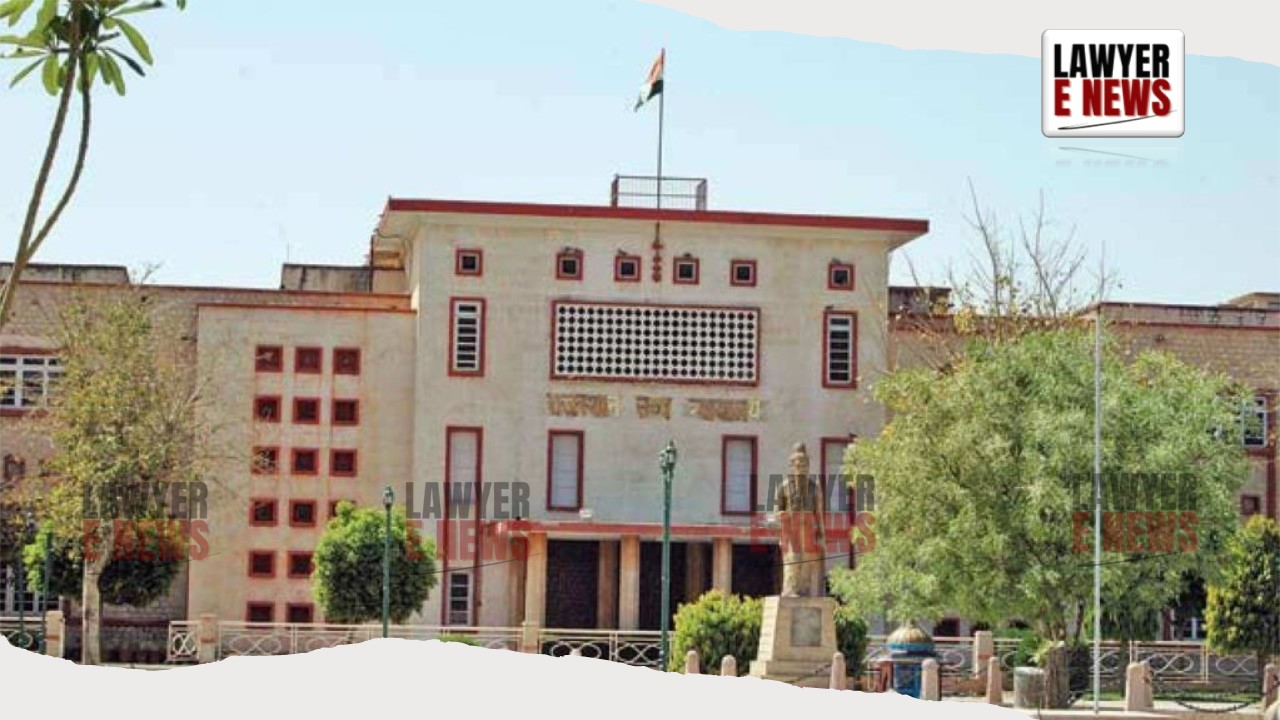-
by Admin
15 February 2026 5:35 AM



On September 19, 2024, the Rajasthan High Court, presided by Justice Anoop Kumar Dhand, delivered a significant judgment in Panna Lal and Others v. State of Rajasthan, confirming the conviction under Section 304 Part-II of the Indian Penal Code (IPC). The appellants were held responsible for causing the death of one Goverdhan during a physical altercation over grazing cattle. The Court, however, reduced the appellants' sentence to the period already served, taking into account the 34-year-long legal battle.
The case originated from an incident on September 23, 1990, when an argument escalated between the appellants—Panna Lal, Ram Swaroop, Lekh Raj, and Bhairu Lal—and Radhey Shyam (PW-1), regarding the appellants’ cattle grazing on the complainant’s field. Later that evening, an altercation ensued, resulting in Goverdhan, the uncle of the complainant, being assaulted by the appellants. Goverdhan sustained 12 injuries, including both blunt and sharp force trauma, and succumbed to his injuries the following day. Initially charged under Section 302 IPC, the trial court convicted the appellants under Section 304 Part-II IPC, sentencing them to seven years of rigorous imprisonment.
The central legal question was whether the appellants’ actions amounted to murder under Section 302 IPC or culpable homicide not amounting to murder under Section 304 Part-II IPC. The trial court held that while the appellants had no intention to kill Goverdhan, they were aware that their actions could likely result in his death.
The appellants provided conflicting defenses, first accusing the complainant of the murder to grab property, and later claiming that the death occurred due to an accident involving an ox. The court rejected these inconsistent defenses, ruling them as unreliable and supportive of the prosecution’s case.
The appellants challenged the sole testimony of Radhey Shyam (PW-1), arguing that it was unreliable due to the darkness and his distance from the scene (150 feet). However, the court upheld the testimony, finding it consistent and credible. It observed that PW-1 had a clear view of the incident despite the darkness, as he was close enough to identify the accused.
The High Court confirmed that the appellants inflicted 12 injuries on the deceased Goverdhan, including injuries caused by both blunt and sharp objects. The court emphasized that while the appellants lacked the intention to kill, their knowledge of the likely consequences of their actions justified the conviction under Section 304 Part-II IPC.
The Court referred to the principles laid down by the Supreme Court in Camilo Vaz v. State of Goa and Jagriti Devi v. State of Himachal Pradesh, noting that Section 304 Part-II applies where death is caused by an act done with the knowledge that it is likely to cause death, but without the intention to cause death.
Given the prolonged legal proceedings—34 years—and the fact that the appellants were only 19-20 years old at the time of the incident, the Court reduced the sentence to the period already served, enhancing the fine from Rs. 1,000 to Rs. 25,000 for each appellant. This fine was directed to be paid to the legal heirs of the deceased as compensation.
The Rajasthan High Court upheld the conviction of the appellants under Section 304 Part-II IPC, confirming that they had knowledge of the likely fatal outcome of their assault, though they did not intend to kill Goverdhan. Considering the extended legal battle and the young age of the appellants at the time of the incident, the sentence was reduced to the time already served, with an enhanced fine.
Date of Decision: September 19, 2024
Panna Lal and Others v. State of Rajasthan
